John Hurrell – 28 May, 2021
The show's title No More the Fruit comes from a clever sculpture where a rickety double-helix type staircase (made of salvaged wood) curves up from the floor to cross over at the top and then descend. On the small steps are precariously balanced an assortment of fragile glass fruit, all in bright colours. We see a persimmon, orange, lemon, strawberry, apple and a bunch of grapes. Obviously these represent ‘the fruit of one's labours,' and clearly they are not easily ‘reaped'.
In a show of five varied works in RM’s Space R, Deborah Rundle contemplates the putative connection between arduous labour and anticipated eventual reward, the striving processes that motivate work, while also including the benefits of thoughtful leisure, and the impact of robotic technology.
It is fitting that an artist like Rundle who regularly uses language in neon form, should present on one wall, in icy blue, the term Happy Hour. The reference to cheap drinks alludes to a recreational stopover during the gap between workplace and home, and seems an ironic comment on the transience of pleasure. It also suggests that imbibing alcohol and purchasing with discounts are essential if one wants to have fun, and that life without them is spent in unintoxicated and poverty-stricken misery.
Glide Time is the name of Roger Hall’s very popular play about bored and underworked office workers in the stores section of a government department. (It debuted in the eighties just before Lange and Douglas came to power.) Besides referencing flexible working hours, it is also the title of the largest work in Rundle’s show, a disc-shaped robotic vacuum cleaner that like a small hovercraft, zag-zags around a rectangular section of floor contained within long strips of skirting board.
From a small blue tooth speaker on its top we can hear Harry Nilsson (in the theme from Gliding On—a television variation) singing about his office furniture, and how happy he and his desk are to see each other in the morning when he arrives at work. In the context of the play and sitcom, the Nilsson tune is loaded with irony.
Also linked to the theme of automation is a wall work of a pencilled frottage of an electronic circuit board—strangely it looks like embossed plush leather—on which are placed dry transfer letters saying ‘Driving Seat’: questioning who that driver might be, and whether such acquiescing of control to robots will turn into a dream or a nightmare for potential workers.
The show’s title No More the Fruit comes from a clever sculpture where a rickety double-helix type staircase (made of salvaged wood) curves up from the floor to cross over at the top and then descend. On the small steps are precariously balanced an assortment of fragile glass fruit, all in bright colours. We see a persimmon, orange, lemon, strawberry, apple and a bunch of grapes. Obviously these represent ‘the fruit of one’s labours,’ and clearly they are not easily ‘reaped’. They can only be gained through considerable patience and skill, and even then they are slippery to hold on to.
Another work, On a Clear Day, mingles the optical effects of cast shadow and printed vinyl language attached to the wall. A suspended transparent Perspex square utilises positioned light with three of its four quarters to allow us to see via its shadows a crossing out, an underlining, and the word ‘DO.’ These interact consecutively with the vinyl words ‘Un’, ‘think’ and ‘able’, merging to make three new profoundly optimistic messages.
The implied notions here of modifying the voracious properties of extractive capitalism, encouraging intense analysis (during leisure time) and striving for change Rundle sees as present in the writing of Paul Lafargue (1842 -1911) a very early Marxist theoretician and revolutionary. His book, The Right to be Lazy, spoke of the benefits of idleness when capitalism as an overarching system is reflected on by its workers during leisure time, so that in the future, potential changes can be implemented. He saw the constructive use of one’s recreational hours as a chance to change the system and improve overall the outcomes of one’s labour. Rundle’s show ruminates on these issues. The importance of finding time to do so.
John Hurrell
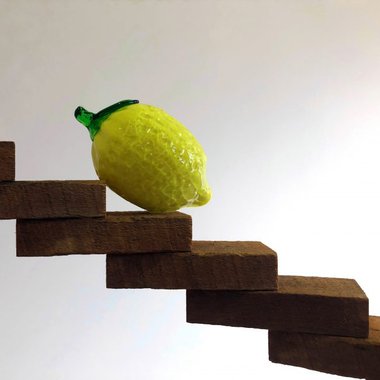
 Two Rooms presents a program of residencies and projects
Two Rooms presents a program of residencies and projects Advertising in this column
Advertising in this column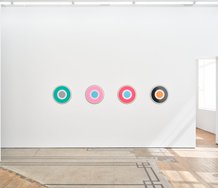
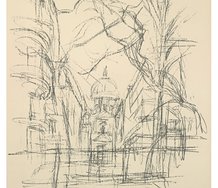
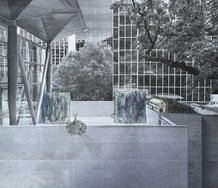
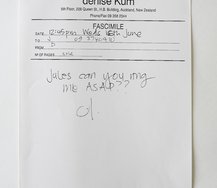
This Discussion has 0 comments.
Comment
Participate
Register to Participate.
Sign in
Sign in to an existing account.